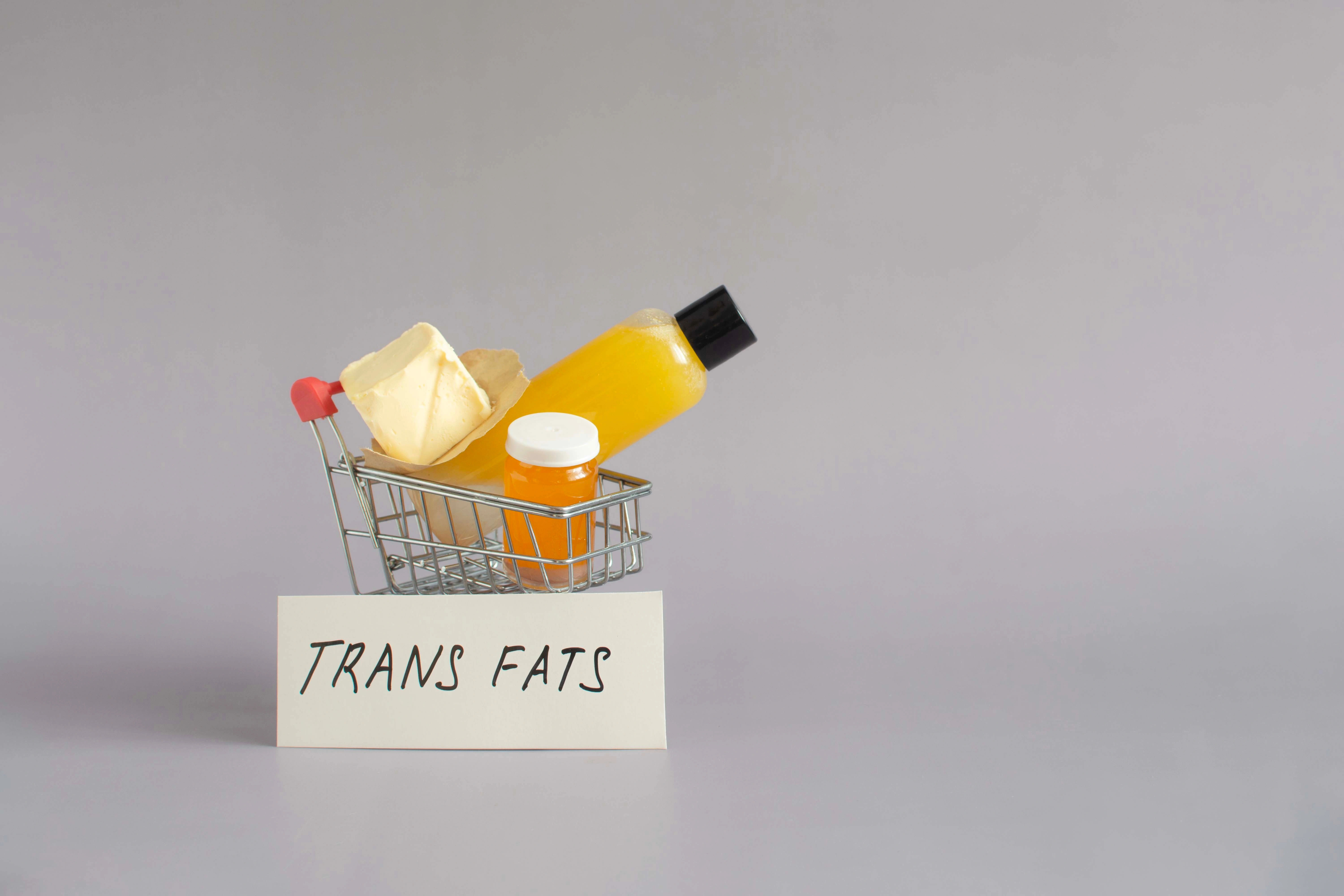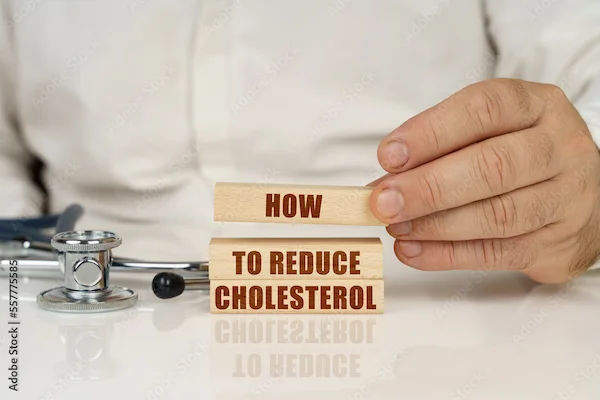How to Reduce Plaque in Arteries: Best Strategies for a Healthier Heart
Plaque buildup in arteries can lead to serious heart problems. Discover effective ways to reduce arterial plaque, improve circulation, and protect your heart with diet, exercise, and lifestyle changes.

Written by
Last updated on 13th Jan, 2026
Introduction
Arteries are essential to the body's circulatory system, transporting oxygenated blood to vital organs and tissues. However, due to various factors such as diet, lifestyle, and genetics, plaque—made of fat, cholesterol, and other substances — can begin to build up on the artery walls over time. This plaque can lead to a condition known as atherosclerosis, which highly increases the risk of heart problems, stroke, and other serious health complications.
Fortunately, there are effective ways to reduce plaque in arteries, prevent its formation, and improve overall cardiovascular health. This article will explore the causes of plaque buildup, its associated risks, and how you can take proactive steps to reduce plaque and improve your heart health.
What is Plaque in Arteries?
Plaque in arteries refers to fatty deposits that accumulate on the inner walls of the blood vessels. This condition, called atherosclerosis, can develop over time due to an unhealthy diet, smoking, high blood pressure, and other lifestyle factors. As the plaque grows, it narrows and hardens the arteries, making it more difficult for blood to flow through them. This reduces the oxygen and nutrients delivered to the heart and other organs, therefore increasing the risk of heart attacks and strokes.
The primary components of arterial plaque include:
Cholesterol: High amounts of low-density lipoprotein (LDL) cholesterol, also known as "bad" cholesterol, are the leading contributors to plaque formation.
Fatty deposits: These are formed when people consume excessive fats, particularly unhealthy fats such as trans fats and saturated fats.
Calcium: Calcium can accumulate in plaque over time, causing it to harden and further narrow the arteries.
Other substances: These include white blood cells, cellular debris, and fibrin, a protein involved in blood clotting.
Why is Plaque in Arteries Dangerous?
The narrowing and hardening of the arteries as a result of plaque buildup are dangerous because they restrict the flow of blood and increase the likelihood of blood clots. These clots can block blood flow ultimately, leading to:
Heart attacks: When plaque ruptures and forms a clot, it can block the coronary arteries, leading to a heart attack.
Strokes: A stroke can caused by a blood clot that forms in the brain or travels to the brain, potentially leading to permanent brain damage.
Peripheral artery disease (PAD): It occurs when plaque builds up in the arteries of the legs or arms. It can cause pain, numbness, and difficulty walking.
Risk Factors for Plaque Buildup
Several risk factors contribute to plaque development in arteries, some of which can be controlled through lifestyle changes, while others may be genetic. Key risk factors include:
Poor diet: A diet with more cholesterol, saturated fats, trans fats, and sodium can contribute to plaque buildup in the arteries.
Lack of exercise: Lack of exercise increases the risk of obesity, high cholesterol, and high blood pressure, all give rise to atherosclerosis.
Smoking: Smoking impairs blood vessels and accelerates the process of plaque formation, making it a significant risk factor.
High blood pressure: Chronic high blood pressure can impair the walls of the arteries, making them more susceptible to plaque buildup.
Diabetes: People with diabetes often have higher blood sugar levels, which ultimately increase the risk of plaque buildup and heart disease.
Age: The older we get, the more likely plaque accumulates in our arteries, especially if other risk factors are present.
Genetics: A family history of heart conditions can increase the risk of developing atherosclerosis.
Stress: Chronic stress can lead to unhealthy behaviours like overeating, smoking, and poor sleep, all of which increase the risk of plaque buildup.
How to Reduce Plaque in Arteries?
Lifestyle changes, medical interventions, and natural remedies can help prevent and even reverse the process of plaque formation in arteries. Here are some practical ways to reduce plaque in your arteries:
1. Adopt a Heart-Healthy Diet
Eating a proportional and healthy diet is crucial for managing cholesterol levels and reducing plaque buildup in the arteries. Focus on the following foods:
Fruits and vegetables: These are rich in antioxidants, fibre, and essential nutrients that promote heart health and help reduce inflammation in the arteries.
Whole grains: Foods such as oats, brown rice, and whole wheat bread are high in fibre, which helps lower cholesterol levels.
Healthy fats: Replace unhealthy fats with unsaturated fats in foods like avocados, olive oil, and fatty fish (salmon, mackerel, sardines). These fats can help increase "good" HDL cholesterol and lower "bad" LDL cholesterol.
Nuts and seeds: Walnuts, almonds, and flaxseeds are rich in healthy fats and fibre that promote cardiovascular health.
Legumes: Beans, lentils, and chickpeas are excellent sources of protein and fibre that help manage cholesterol levels.
On the other hand, avoid or limit foods that contribute to plaque buildup, such as:
Processed foods: These are high in unhealthy fats, salt, and sugar, which can raise cholesterol and blood pressure.
Red meat and full-fat dairy: These foods are high in saturated fats, which can increase LDL cholesterol.
Fried foods: Fried foods are high in trans fats, which contribute to arterial plaque formation.
2. Exercise Regularly
Getting regular exercise is one of the best things you can do for your heart and to clear out plaque from your arteries. Working out helps bring down your blood pressure, improves your cholesterol, and keeps your blood flowing smoothly. Try to get at least 30 minutes of moderate exercise most days of the week. Engage in activities like:
Walking or jogging
Cycling
Swimming
Yoga or Pilates
Regular exercise can also help manage a healthy weight, which is essential for managing cholesterol and reducing the risk of heart disease.
3. Quit Smoking
Smoking is a major culprit behind heart disease. The harmful chemicals in cigarette smoke can damage your blood vessels and contribute to plaque buildup. The best thing you can do for your heart is to quit smoking. If you need help, think about joining a program to help you stop smoking or talk to a healthcare professional for support.
4. Manage Stress
Ongoing stress can cause habits like overeating, smoking, and skipping workouts, all of which contribute to plaque buildup in your arteries. It's essential to manage stress to keep your heart healthy. Try these stress-reduction techniques:
Meditation or mindfulness: These practices can help you relax and reduce stress.
Deep breathing exercises: This simple technique can help calm your mind and lower blood pressure.
Hobbies and leisure activities: Doing things you enjoy can be a great way to unwind.
5. Control Blood Pressure and Cholesterol
High blood pressure and high cholesterol can really contribute to plaque buildup in your arteries. Keeping an eye on these levels is super important for your heart health. Here are some steps you can take to manage your blood pressure and cholesterol:
Limit salt intake: Excess sodium can raise blood pressure, so reduce your consumption of salty foods.
Eat heart-healthy foods: Foods high in fibre, antioxidants, and healthy fats can help lower cholesterol and blood pressure.
Take prescribed medications: If lifestyle changes aren't enough, your doctor may recommend medications to manage high blood pressure or high cholesterol.
6. Consider Medical Interventions
In some cases, medical interventions may be necessary to reduce plaque in the arteries. Your doctor may recommend one or more of the following treatments:
Statins: These medications can help lower LDL cholesterol levels and slow plaque buildup.
Aspirin therapy: Low-dose aspirin can help prevent blood clots, reducing the risk of heart attacks and strokes.
Angioplasty or stent placement: If plaque severely obstructs an artery, an angioplasty may be performed to open the artery, often followed by placing a stent to keep the artery open.
Conclusion
Plaque buildup in the arteries is a serious health concern, but it can be managed and even reduced with the right lifestyle changes and medical interventions. Adopting a heart-healthy diet, staying physically active, quitting smoking, managing stress, and controlling blood pressure and cholesterol can significantly reduce one's risk of developing atherosclerosis and protect one's heart health. Regular check-ups with one's healthcare provider will help ensure one's cardiovascular system remains healthy for years.
Consult Top Cardiologists
Consult Top Cardiologists

Dr. Birendra Pawar
Cardiologist
18 Years • MBBS, MD(Medicine), FIMSA, MIAE
Noida
Apollo Hospitals Sector 26, Noida
(50+ Patients)

Dr. Srinivasan K N
Cardiologist
11 Years • MD, DNB (Cardio)
Chennai
Apollo Hospitals Greams Road, Chennai
(200+ Patients)
Dr. Raman Puri
Cardiologist
29 Years • MD, DM
Delhi
Apollo Hospitals Indraprastha, Delhi

Dr. Vijayakumar Subban
Cardiologist
15 Years • MD, DM (Cardiology), FNB (Intreventional Cardiology), Fellowship in Interventional Cardiology (The Prince Charles Hospital, Brisbane, Australia), Fellowship in Intravascular Imaging and Physiology (Asan Medical Center, Seoul, Korea), Cardiac CT (SCCT- Level II), Cardiac MRI (SCMR- Level I)
Chennai
Apollo Hospitals Greams Road, Chennai
(150+ Patients)

Dr. Zulkarnain
General Physician
2 Years • MBBS, PGDM, FFM
Bengaluru
PRESTIGE SHANTHINIKETAN - SOCIETY CLINIC, Bengaluru

 (1).webp)


